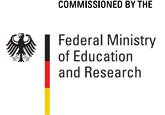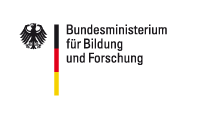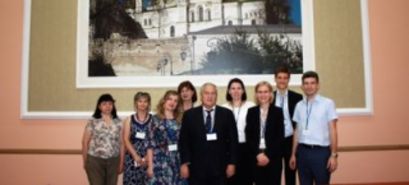The National Academy of Sciences of Ukraine (NASU) is a core element of the Ukrainian science system. However, fundamental changes are needed to enable NASU to play a more active role in Ukraine's social and economic transformation.
Project objective
The aim of this funding measure was to develop, implement and optimise a new evaluation methodology. Even before the start of the project, NASU had begun to carry out initial pilot evaluations. The design of the new methodology was based on the established evaluation methods of the Leibniz Association. This approach was obvious due to the structural similarities between the NASU and the Leibniz Association.
Taking into account the specific characteristics of Ukraine, the scientific monitoring and development of the evaluation method represented a great opportunity to support the reform process in Ukraine. The project identified core problems in the implementation of the new method and considered the usability of experiences from Germany for the Ukrainian situation. It also developed proposals for the improvement of NASU and discussed further cooperation potential.
Results and achievements
During the project period, several working meetings and scientific workshops of the German-Ukrainian team took place in Berlin and Kiev. The project was presented to the Leibniz Association in Berlin and discussed with representatives of its 'Evaluation' and 'International' departments.
The final conference with high-ranking representatives from politics and science was held in Kiev. All team members of the German and Ukrainian partners were actively involved in this event. Results and experiences of the project were presented and discussed at the German Embassy in Kiev.
In addition, the project identified cooperation potentials between NASU institutes and the Leibniz Association and merged them into a 'twinning list' with recommendations for future joint activities.
A transfer-oriented booklet sums up the main results of this international project and communicates its outcomes to a wider audience in a generally understandable way.
The website of the University of Bremen offers additional information on this project.
Contacts:
Dr Thomas Reineke
DLR -PT | European and International Cooperation | International Bureau
Tel: +49 228 3821 1448
thomas.reineke@dlr.de
Professor Jutta Günther
University of Bremen | Chair of Economics of Innovation and Structural Change
Tel: +49 421 218 66632
office-guenther@uni-bremen.de










